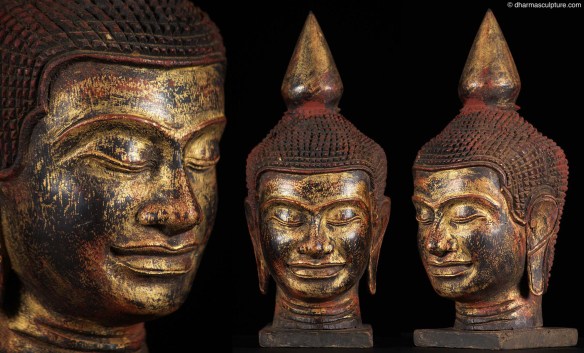Vajrasattva, also known as the primordial Buddha of all Mandalas, symbolizes the purification of delusions that obscure minds. Vajrasattva holds in front of his heart a vajra (dorje), representing the mind’s enlightened essence. Above his left thigh he holds a bell (ghanta), representing insight into the empty nature of reality. Vajrasattva stands for the total purification of the afflictive passions that lead to unfavorable rebirths. Through Vajrasattva‘s hundred-syllable mantra, the shroud covering enlightened awareness can be completely removed.
This Vajrasattva statue is inlaid with semi-precious stones. He wears a beautifully carved robe and a mukut over his head. He sits in the meditative pose above a single lotus base.
The base of the piece is sealed with a double vajra symbolizing the balance of the four elements and harmony of the four directions. There are 2 separate pieces to this statue, the Buddha and the base.
This lost wax method copper sculpture is a one of a kind statue, hand cast by the very talented artists of the beautiful country of Nepal. Every piece is truly unique!






